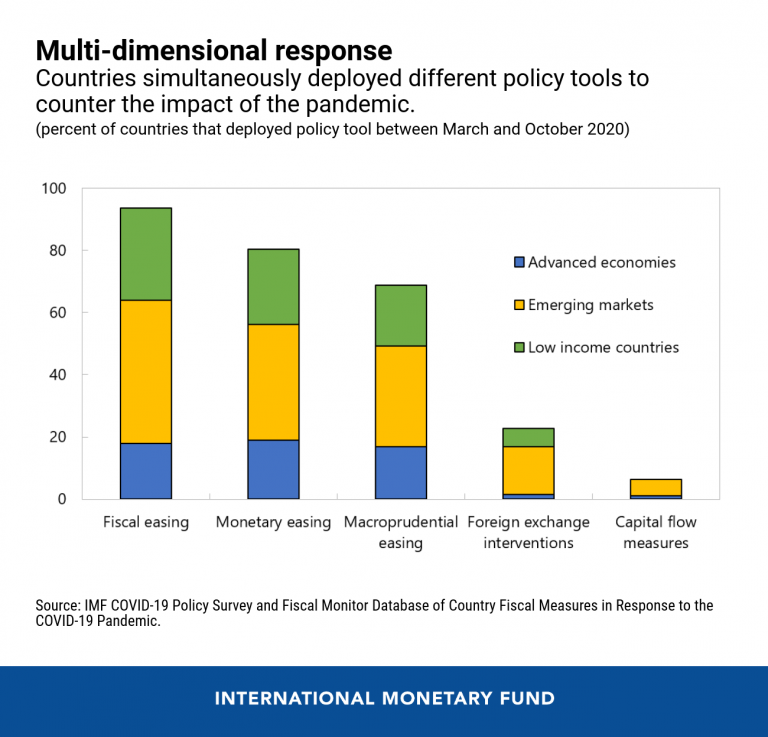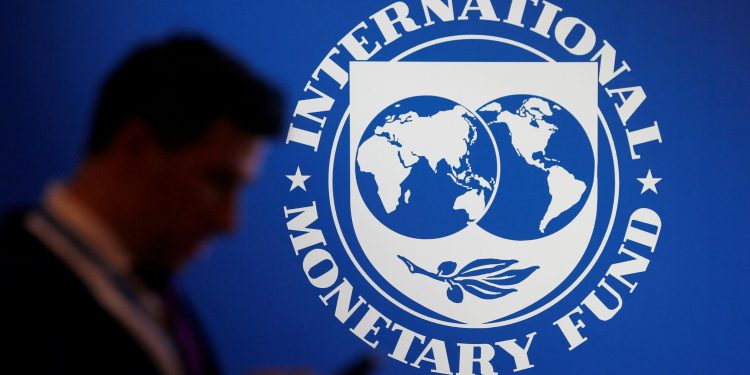The International Monetary Fund is responding to the policy challenges of a fast-changing global economy still reeling from the COVID-19 crisis: it is modernizing the way it provides its regular policy advice to member countries—a process known as surveillance.
The regular health check of members’ economies, known as the Article IV consultations, will continue to cover fiscal, monetary, exchange rate and financial issues, which are at the heart of the Fund’s work.
In the future, we will systematically integrate issues that have substantial macroeconomic impact such as inequality, climate change, and digital technology, so as to better deliver on our surveillance mandate.
In the future, we will systematically integrate issues that have substantial macroeconomic impact such as climate change and digital technology, so as to better deliver on our surveillance mandate.
The tailored and targeted policy advice to countries will also help policymakers better prepare for a transforming economic landscape.
A fast-changing world with challenges, new and old
The COVID-19 pandemic is a watershed moment in the still-young 21 st century. The pandemic exposed new risks and spillovers, and significant uncertainties about the recovery.
The prospect of transformational change existed even before the pandemic. The world is becoming more interconnected, trends in digitalization and inequality are accelerating, and addressing climate change is now a key priority.
On top of this, policymakers must now also navigate the COVID-19 crisis. First and foremost, by saving lives and livelihoods, then ensuring a sustainable recovery and avoiding economic scarring.
To do this, they must confront questions for which there are often no easy answers including: how should policies be calibrated to maintain adequate support while ensuring stability and sustained growth? How should policymakers respond when facing scant room for maneuver because macroeconomic tools have already been extensively used in the Global Financial Crisis? How can asynchronous and divergent economic recoveries be managed so that those still grappling with the pandemic avoid falling further behind?
Modernizing the Fund’s surveillance framework
To confront these changes, the Fund’s policy advice is evolving, both on substance and in the way the Fund engages with its members.
This new direction is highlighted in the 2021 Comprehensive Surveillance Review, recently approved by the Fund’s Executive Board. The Review—the first since 2014—reflects extensive discussions with member country authorities, external experts, and other stakeholders. It outlines four priorities that will direct the Fund’s surveillance in the future:
- Confronting risks and uncertainties. Policy advice will need to better assess a range of possible outcomes. This will help prepare for worse-than expected scenarios, while also ensuring that policies take advantage of positive surprises and opportunities.
This will require an improved understanding of risk-reward trade-offs, supported by contingency planning and policies geared towards risk management. Such advice can include quantitative considerations–for example, how much insurance to buy against natural disasters–and qualitative aspects, for example, how to take advantage of a growth windfall.
- Preempting and mitigating spillovers. The pandemic has underscored the scale of global interconnectedness. Events in one country can have sizable effects across the globe. Divergent recoveries can intensify effects of policy normalization. New sources of such spillovers, including from health policies, climate change, and digitalization will shape the future. It will be critical to identify and assess economic and policy spillovers, and to provide policy advice on how to mitigate and pre-empt them. International economic cooperation can also benefit from better dialogue between spillover producers and spillover receivers.
- Fostering economic sustainability. A broader understanding of economic sustainability is needed. Economic stability over time is necessary–but not sufficient–to achieve economic sustainability. Trends in demographics, inequality, socio-political developments, and climate change impact economic stability, and will be discussed more systematically. Not all trends are equally pressing for all countries–country specific circumstances determine if they are macro-critical.
- A unified approach to policy advice. Balancing competing priorities with limited room for maneuver is the key challenge. During the pandemic, member countries simultaneously deployed various policy tools (see chart). This required their careful calibration and an understanding of complementarities and conflicting objectives.

The relevant issues differ across countries and over time: coordination of fiscal and structural policies, for example, is important for countries facing low productivity. A deeper integration of macro-financial analysis is particularly important where financial risks are building.
For countries dealing with capital flows and seeking to better counter external shocks, the Integrated Policy Framework (IPF), which outlines the policy options and tradeoffs available to policymakers, provides an analytical approach to selecting an appropriate policy mix.
Unified policy advice helps decision makers discuss these trade-offs and point to synergies.
Policy dialogue with Fund members will continue to follow requirements endorsed by the IMF’s Executive Board. The Article IV consultations will continue to provide a comprehensive assessment, and will cover fiscal, monetary, external, financial and structural policies.
The reports will be more focused, and better integrate macrofinancial aspects, risk assessment and contingency planning, spillovers, and capacity development. New technologies and enhanced data availability will help to modernize business practices and enhance the relevance of surveillance.
Policy advice will become more granular and country-specific. This is especially so for new and pressing questions, where peer-learning will be needed, such as ways to limit economic scarring or to provide targeted support to firms. Another improvement is ensuring that IMF advice is informed by early identification of cross-cutting policy issues and of lessons from countries’ experiences.
The Comprehensive Surveillance Review is an important milestone, and much work lies ahead to put it into action. Change will be gradual. While the priorities are relevant under a broad range of future outcomes, events are uncertain, and unforeseen shocks will occur. The IMF is a learning institution–being ready to adapt, experiment, and revise is the cornerstone for delivering agile and effective advice to our members







